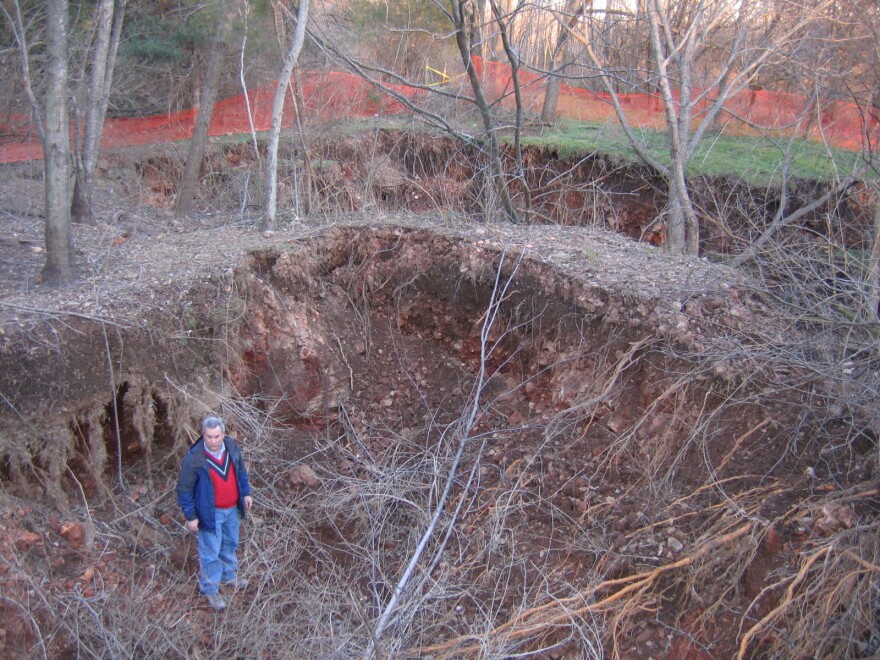We put out some questions on social media to see what you wanted to know about sinkholes. First, here’s a clip of CoMo Explained where I explain everything we learned before talking to Missouri State University Associate Professor of Geology and sinkhole expert Doug Gouzie. You can also read about our previous sinkhole reporting here.
Here’s a link to the Columbia Tribune article about subdivision development in the Rock Bridge area I mentioned in the segment.
Below are the questions we received with a brief written summary and a more in-depth answer in the audio clip from Gouzie.
What effect can construction have sinkholes?
Commercial structures with a large budget behind them can drill through the sinkhole and essentially build bridge-piers to support the structure, Gouzie explains. The sinkholes are an important drainage feature in the landscape, so precautions in the construction process are necessary to insure the sinkhole isn’t clogged or contaminated because that can affect the water downstream.
Why are there also so many sinkholes in Florida, are there similar processes at work?
The carbonate rock and limestone that makes sinkhole development possible makes up more a little more than half of Missouri but is underneath the entire state of Florida.
How does weather affect sinkhole development? Can heavy snow or rain speed the process along?
While not in his particular field of research, Gouzie has read research papers that theorized weather and precipitation can affect the clay in the soil at the top of the underground caves and situations such as a heavy rain after a long dry period can make the clay expand, grow too heavy and collapse in.
How many sinkholes have you been in and seen in your career? What are some of the ones that stick in your mind?
Gouzie says he’s been in a couple hundred. There have been a few sinkholes that are “famous” among geologists. He explains which ones he remembers in the clip.
Can a sinkhole opening release underground gases, like ammonia or methane?
It’s possible, Gouzie says, but not likely ammonia or methane. Carbon dioxide would be far more common. There are cases where contaminants from unnatural sources have seeped into sinkholes. Gouzie remembers one case in particular about 20 years in Kentucky where an underground cavern exploded because of an underground gasoline storage tank leak.
Underground water creates caves, sinkholes from KBIA FM on Vimeo.

